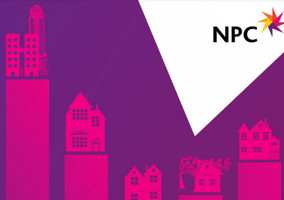The government’s existing levelling up funding programmes are “biased” towards hard infrastructure projects, neglecting social aspects, according to charity think tank NPC.
In a paper, Levelling Up and Social Needs: An Analysis of Government’s Progress, published today, NPC warns that if later rounds of funding do not offer more support for social infrastructure, such as youth clubs, then the government’s programme will fail.
Researchers analysed £5bn of the £8.8bn that has been allocated to see where in the country funding was being targeted and how it was being used.
In England, NPC found that funding has been weighted towards areas with higher levels of deprivation, however this was not the case for Scotland and Wales.
The analysis said that “as little 2% of the levelling up funding allocated so far is going on social infrastructure and services that tackle homelessness, poverty and crime”.
NPC also found that the projects being funded “biased towards hard infrastructure, buildings and economic growth”.
The paper adds: “A focus on these areas and metrics neglects the social infrastructure which is key to improving places.”
NPC urges the government to use the upcoming white paper on the levelling up agenda to set out how charities and community groups can be more involved.
Leah Davis, NPC’s head of policy and external affairs, said: “When you ask people how they would judge their area to have levelled up, they’ll tell you about the social issues in their area, like homelessness, crime, and poverty.
“Yet so far levelling up money has been focussed on physical infrastructure, and we’re not seeing targeting towards places with higher rates of homelessness, despite these issues being what the public most care about. With a white paper imminent, and the UK Shared Prosperity Fund yet to be fully allocated, the government has a real opportunity to set this right.”
Wealthy areas benefiting
Although the trend in England was for funding to be directed where it was most needed, there were “significant omissions” and some examples of wealthy areas receiving large sums of money.
In some cases NPC says this is understandable due to funding being awarded for a very large single infrastructure project. For example, the Isles of Scilly, among the least deprived areas areas, has been allocated £48.5m for a new ferry.
Others it describes as “more difficult to justify”, such as Lewes in East Sussex getting £45m, despite being an affluent area, to support the fishing industry and a new bridge.
At the other end of the scale, even in England where funding is largely targeted in the right areas, there are some deprived areas that have so far received no funding.
These areas are: Knowsley, Barking and Dagenham, Hackney and Islington.
Racial inequality
NPC also compared the funding allocations with to the proportions of some ethnic minority groups in local authority areas and found that areas with the highest concentration of Black, African and Caribbean populations received less funding.
The report suggests this may be due to how levelling up funding is being targeted to areas with low productivity, “which are generally smaller towns and rural areas, whilst areas with high Black, African and Caribbean populations tend to be in larger cities”.
Create a Levelling Up Intelligence Board
NPC calls on the government to “change the criteria for the Levelling Up Fund to include social infrastructure projects such as those that cut homelessness and crime” and to include social issues in the criteria for the Shared Prosperity Fund.
The paper adds that those areas that are prioritised for funding should “produce a local roadmap”, and involved local communities.
Finally, it suggests a Levelling Up Intelligence Board, which involves charities of all sizes, businesses, faith groups and community groups and could “provide intelligence” to the government.
Related articles












